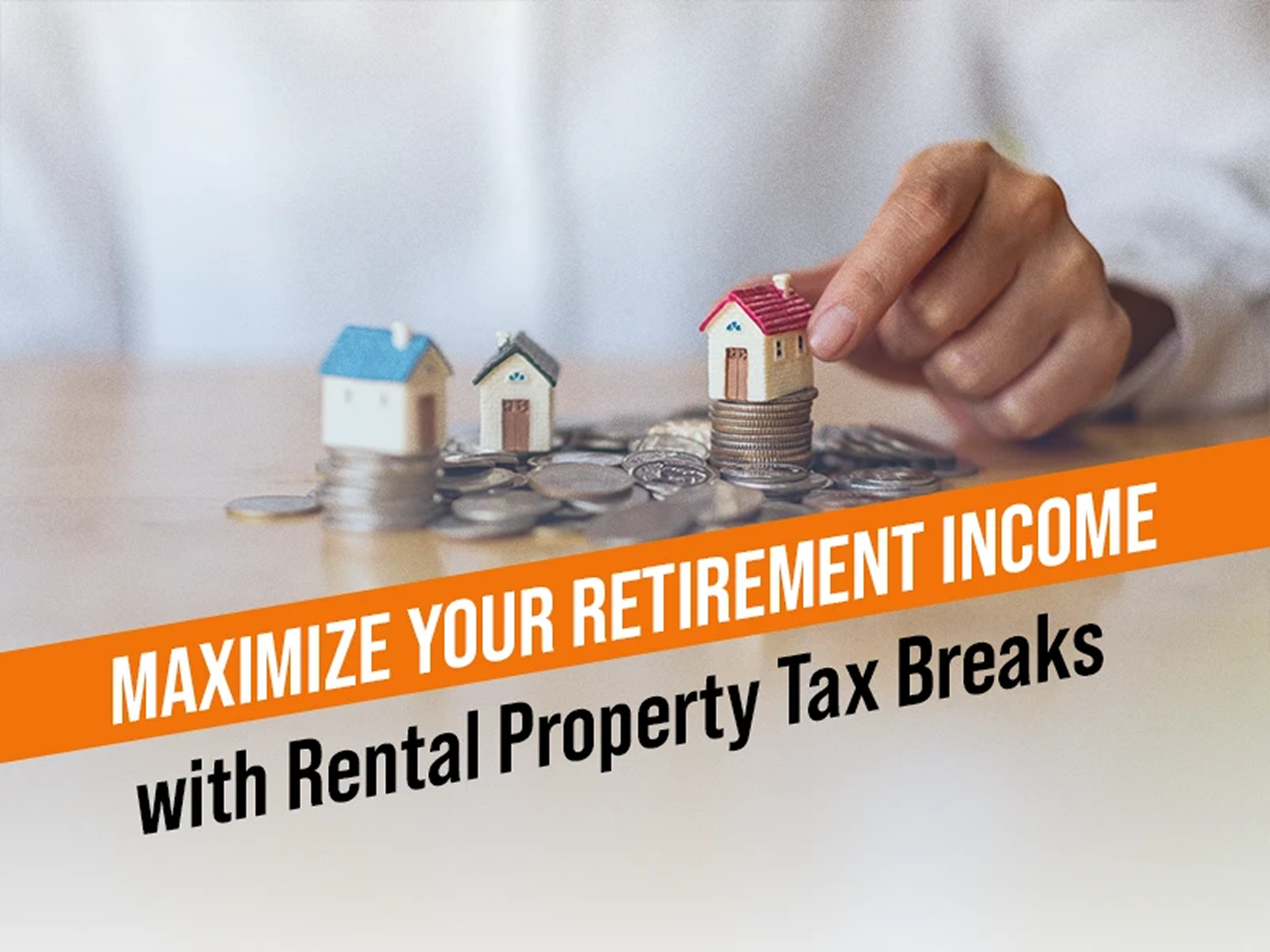
Proactively planning for your retirement ahead of time is essential to ensure you continue to enjoy a steady stream of income after you retire. Regular income after retirement will help you maintain your current lifestyle and shield you from financial distress. An effective strategy to boost your retirement income is investing in rental properties and taking advantage of various tax breaks. In this blog, we'll explore how you can maximize your retirement income through rental property while enjoying tax breaks that will contribute toward building up your retirement savings.
How Real Estate Helps Secure Your Retirement
- Diversify your investment portfolio: Investing in real estate helps in diversifying your investment portfolio. By spreading your investments across a variety of asset classes, such as stocks, bonds, real estate, and commodities, you can manage risk more efficiently and reduce the impact of poor performance in any single asset class. It also helps you achieve long-term financial growth.
- Protection from inflation: Investing in real estate keeps your finances protected from the impact of inflation. This is because the rise in real estate value generally matches or overtakes inflation, keeping your purchasing power intact when you retire.
- Earn income passively: Income from rental properties is passive income in the sense that you do not need to be actively involved in generating cash flows. This ensures you relax during your retirement while enjoying a steady inflow of cash.
- Appreciation in income value: Your investments in real estate are likely to appreciate in the future leading to an increase in your retirement wealth.
- Taxation benefits: Investments in real estate have several tax advantages, particularly when it comes to rental properties, and we discuss key points below.
Rental Property Tax Breaks
1. Depreciation Deductions
What is depreciation on rental property? Depreciation allows you to deduct the cost of the property over its useful life, which is typically 27.5 years for residential rental properties according to the IRS rules. This non-cash deduction can significantly reduce your taxable income, even if your property is appreciating in value.
How to claim depreciation: To claim depreciation, you'll need to calculate the depreciable value of your property, which includes the purchase price, closing costs, and costs of improvements. It's essential to keep detailed records of all annual expenses related to the property to ensure accurate deductions.
2. Mortgage Interest Deductions
Benefit from Mortgage Interest: If you finance your rental property with a mortgage, the interest you pay on the loan is deductible. This can be a substantial deduction, especially in the early years of the mortgage when interest payments are higher.
How to Deduct Mortgage Interest: To deduct mortgage interest, you'll need to itemize your deductions and provide documentation of your mortgage payments. Ensure that you keep track of all mortgage statements and related documents for accurate record-keeping.
3. Deductible Expenses
Operating Expenses: You can deduct various operating expenses associated with managing and maintaining your rental property. These expenses include property management fees, maintenance and repairs, utilities, insurance, and advertising costs.
Capital Improvements: Unlike repairs, capital improvements increase the value of the property and extend its useful life. While these expenses are not immediately deductible, they can be depreciated over time, providing long-term tax benefits.
4. Passive Activity Loss Deductions
Understanding Passive Activity: Rental income is considered passive activity, and the IRS limits the amount of passive losses you can deduct against non-passive income. However, if you actively participate in managing your rental property, you can apply for and get the Real Estate Professional Status (REPS), which will make you eligible to deduct up to $25,000 in passive losses annually.
5. 1031 Exchange
What is a 1031 Exchange? A 1031 exchange allows you to defer capital gains taxes by reinvesting the proceeds from the sale of one rental property into another like-kind property. This strategy enables you to build wealth and upgrade your rental portfolio without paying taxes on the gains.
Requirements for executing a 1031 Exchange: To execute a 1031 exchange, you must follow strict IRS guidelines, including identifying a replacement property within 45 days and completing the exchange within 180 days. The like-kind property that you invest in must be equal to or greater than the value of the property sold. Your capital gains tax will be deferred until you decide to sell the like-kind property. Working with a qualified arbitrator can help ensure compliance with the regulations.
6. Qualified Business Income (QBI) Deduction
What is the QBI Deduction? Under the Tax Cuts and Jobs Act, rental property owners may be eligible for the Qualified Business Income (QBI) deduction, which allows them to deduct up to 20% of their qualifying rental income. This deduction can provide significant tax savings for rental property owners.
Eligibility for QBI Deduction: The eligibility criteria for the QBI deduction are:
- The rental property must be considered a trade or business. This generally requires regular and continuous involvement in the property's management.
- You must fall below the specified income thresholds for single filers and joint filers.
Investing in rental properties and leveraging tax breaks is a robust method of maximizing your retirement income. You can reduce your taxable income and boost your financial security by taking advantage of depreciation deductions, mortgage interest deductions, deductible expenses, passive activity loss rules, 1031 exchanges, and the QBI deduction. Consult with a tax professional to smoothly navigate the complexities of IRS tax laws and optimize your retirement strategy.
FinloTax: A Premier Tax Consultancy Firm in CA
At FinloTax, we provide personalized and expert tax planning, preparation, and advisory services to individuals and businesses in CA.
Planning for retirement is crucial, and leveraging rental property tax breaks can significantly enhance your income. We can help you uncover valuable tax deductions and credits to maximize your rental property income. Our experts will guide you through the intricacies of the tax system, ensuring you take full advantage of all available benefits.
Contact us at 4088229406 for personalized advice and start securing a financially robust retirement!

